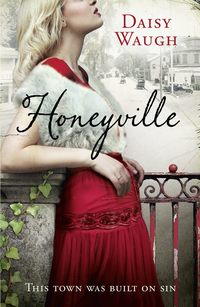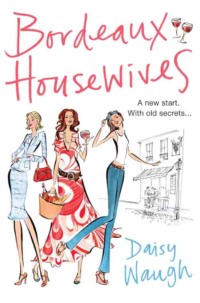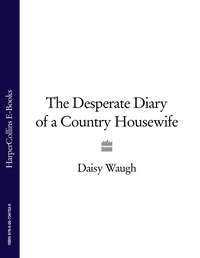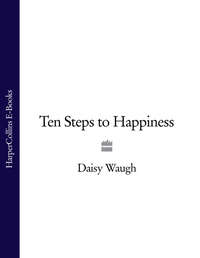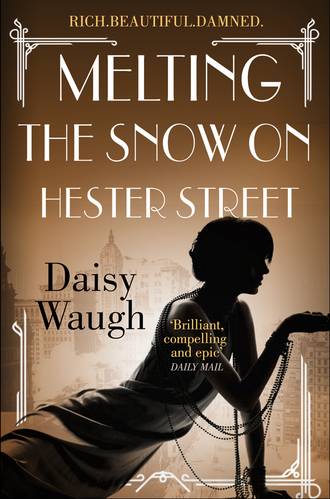
Полная версия
Melting the Snow on Hester Street
He looked at Blanche, her honest, pretty face so eager to hear whatever he might say next – no matter what. The problem was, he couldn’t remember. Couldn’t remember having the discussion – or even if there had been one. One day it was the three of them working together. And the next day – nothing. He had left them. Both. And he was on his own.
‘Lionsfiel has always been like a family to her,’ he mumbled. ‘That’s what you have to remember. She was never going to leave Lionsfiel. But –’ he added, looking again into those honest eyes, and feeling suddenly, inexplicably compelled to reciprocate, to say something to her that actually had some meaning – ‘I have to tell you,’ he said, surprising himself, not only by its truth but also by the fact of his sharing it with her, ‘I miss her. I miss having her with me on set. I miss spending my days with her. I miss our working together. There was something very, very wonderful about that …’ He paused, thinking about it: the old days. It wasn’t something he allowed himself to do often. And it hadn’t always been wonderful. Of course not. But there had been wonderful moments. Many of them. ‘I’m not sure I realized quite how wonderful,’ he added, ‘until it was gone … Hey. But that’s life, huh?’
‘It sure is,’ she said, scribbling away.
‘Sometimes,’ he added, unwilling to leave the memories just yet, his mind briefly awash with images from good times, the early days – the old nickelodeon on Hester Street, the journey West, the long, slow climb together, ‘when I contemplate a future, making movies without Eleanor … It’s like imagining a world …’ and he paused, searching for the truth – any truth at all – that he might be able to share with her, ‘… it’s like imagining a world without music. Without birdsong …’
‘That’s very, very pretty,’ sighed Blanche. ‘Gosh. I wish someone would say that about me one day.’
He laughed, tilted back in his seat, looked across at her appreciatively. ‘I’ll bet you have guys murmuring stuff like that in your ear just about every day of your life, Miss Williams,’ he said, and he meant it. She was sweet – sweet enough to blush, he noticed. For the second time, too. He watched as she recovered herself; watched as she busily pretended to scribble in her little reporter notebook …
‘But you have to understand, Blanche – may I call you Blanche?’ He leaned across the table toward her. ‘That in spite of everything – really, everything – I had to go to Silverman. Silverman Pictures are making the most exciting – the best – movies in Hollywood right now. I believe that. I truly do believe that. And I make movies, Blanche. I’m a filmmaker. I’m a director. It’s what I do. What I am. There’s nothing else …’
He stopped abruptly, aware that he was revealing too much. He smiled. ‘Any case,’ he continued, ‘I sincerely hope that when you finally get to see the finished cut, you will agree with me that this new picture has been worth the … the pain …’ He paused. Added, more to himself than to Blanche, ‘And of course it has. You know, Blanche, I think, if you don’t mind my saying it, I think it’s my best picture yet.’
And then, somehow, she had looked up from her notebook, gazed back at him with such smitten warmth, that … in the intensity of the moment, the excitement and passion of talking about his beloved project to such a pretty, sympathetic, innocent, intelligent woman, he’d asked Blanche what she was doing later.
And they had spent the rest of that hot August afternoon in Blanche’s bed.
It wasn’t the first time he’d been unfaithful to his wife. Not strictly speaking – not by any stretch. But (if you didn’t count the move to Silverman Pictures), it was the first time Max felt that he was betraying her. Because Blanche was not Eleanor. But she was quite a find. And Max could appreciate that. And he knew from the very beginning that he would be coming back for more.
That was the last time he talked to Blanche about his wife at any length, or in any detail. And it was difficult for Blanche. Always, very difficult. Because Eleanor was a big star. And, if not classically beautiful – her features were irregular; everything was too large, too vital, too wild – there was no question that she shone. Something shone from her on screen – and in life, too. She was a big star. And – yes – Blanche was right. In a city of cheats and shrews, Eleanor’s beauty, her small kindnesses, her beautiful manners, made her a class act. Nobody had a bad word to say about Eleanor.
Max was very fond of Blanche. Blanche knew that. In fact, he loved her. And she knew that, too. But whereas Max Beecham loved Blanche Williams, Blanche Williams was in love with Max.
So it was difficult for her.
8
‘I bumped into Butch Menken yesterday,’ Blanche said suddenly. Changing tack. She was sitting on the edge of the bed looking vaguely for her clothes.
‘I’m sorry to hear it,’ Max replied.
‘Oh, he’s not so bad!’
‘Whatever you say, baby.’
‘And you know what he told me?’
‘Tell me. What did you he tell you?’
‘You don’t know already?’
‘I don’t know if I know. I don’t know what he told you.’
She considered him, the handsome man in her bed, the love of her life, lying there beside her, checking his wristwatch. Already thinking about his next appointment, his next battle, his next … whatever it was he had to do, which had nothing whatsoever to do with Blanche Williams. She was jealous – only a little jealous, she told herself. She was ferociously jealous – and not just of his wife, but of all the beautiful women who surrounded him. To be fair, he had never given her any reason to suppose that his attention wandered. But he cheated on his wife, and that was enough. If he cheated on his wife, why wouldn’t he cheat on Blanche?
She pushed the thought aside. It was pointless. Self-defeating.
‘So?’ Max glanced across at her, noticed her troubled expression. He placed a thumb between her brows and gently creased out the small frown. ‘Baby? You still here? … What did Butch tell you?’
‘Butch told me … only I thought you might already know. Because it so directly affects you. But I guess not.’
‘What?’
‘Well. That Butch is joining you at Silverman.’
Max dropped his thumb, looked at her sharply. ‘Nonsense.’
‘That’s what he told me, Max. He said – because of Eleanor’s role in PostBoy. Being partly the reason … But I’m not sure if I believe that. Except he probably feels pretty bad, with Eleanor being left behind again, after you already did it once … But I’m telling you he’s leaving Lionsfiel and he’s going over to Silverman.’
Max gazed at her. ‘Blanche,’ he said coldly, ‘you’re talking in riddles. What about Eleanor’s role? What has that to do with Butch coming to—?’
‘Butch Menken is joining Silverman as executive head of production,’ she said, patiently, despite his tone. ‘I’m sorry, Max. They should have told you. Joel Silverman should’ve told you. Should’ve … involved you in the decision.’ She leaned over and kissed him, as an apology – for the news itself, and for being the one to tell him. She offered him a perky, uncomfortable smile. ‘So I guess that means he’s going to be your boss.’
Without another word, Max climbed out of bed.
‘Hey! … Max?’
He ignored her.
She followed his naked shape through to the small sitting room, where their clothes were still strewn over the couch. (Scarlet velvet, it was. Very moderne. Her proudest possession.) ‘Max? It’s not the end of the world … C’mon! … You two worked well together before. You made some great pictures together. You, Eleanor, Butch: you were a tour de force. Pardon my French. Gosh – maybe he’ll bring Eleanor across with him. Wouldn’t that be something?’
‘He’s not going to do that.’
‘Well, but he might.’
‘No. He’s not.’
‘Especially now. She has her contract up for renewal. And with the casting on PostBoy, and it all looking so shaky and all … you know?’
‘I don’t, Blanche. No. I don’t know. Unlike you I don’t know everything about everyone else’s business. Because I have enough business of my own to keep me occupied.’
‘It is my business to know everyone’s business. And you benefit from that.’ She told him levelly, her feelings hurt.
Max collected himself. ‘I’m sorry, baby. Of course it is. That was rude of me.’
‘In any case,’ she continued, brushing his apology aside, ‘you and Butch – you worked well together before. Didn’t you? You’ll work well together again!’
He smiled grimly. ‘Somehow I doubt that.’
‘Max – I hate to say it, but you haven’t had a sensation since The Girl Who Couldn’t—’
‘Every film I make is a sensation.’
‘Well, I know that. But you know what I mean …’
‘If by “sensation” you mean “sensational ticket receipts”,’ he said, childishly, as if, in Hollywood, ‘sensation’ could ever mean anything else, ‘well, baby, you go right ahead and say it.’
‘OK, I will.’
‘Because it so happens I’ve had more goddamn box-office hits than just about any other director in this town.’
Blanche, unselfconsciously naked, leaning against the doorframe, watching him dress, wondered, sometimes, what she saw in the man. She sighed. ‘That’s not actually true, Max. And you know it and I know it. And you know I know it. And actually I could give you a list of the ten – hell – the top twenty grossing directors in this town these past two years. You don’t even come close.’
He didn’t reply.
She relented, just a little. ‘OK – 1927, you came close. But we’re near to finishing 1929! That’s almost three years, Max. Don’t pretend you don’t know. I’m only saying, maybe Butch doesn’t have to be such a bad thing for you. What’s the big deal?’
Max didn’t answer. She watched him, shaking out his pants – scowling at them, at her – at everything … And still so damn handsome. She softened, but not only because of that. Because, in spite of everything – his temper, his director’s vanity – he cared so much about the movies he made. It was noble, foolish – doomed. And she sensed that, underneath the machismo and the bluster, he knew it. He was a talented filmmaker, yes. A talented and dedicated filmmaker, whose films would probably one day be forgotten. And she loved him for it.
‘By the way,’ she said, ‘I was touched, you know. When you wore the white jacket last night. Didn’t think you’d do it.’
He chuckled, in spite of everything. ‘The fuss you made about that goddamn jacket. You would have killed me if I hadn’t.’
She’d given him the jacket as a birthday present, way back in May. And then, even before he’d pulled it out from its elaborate ribbon and wrapping, she was fighting with him, working herself into a state about how he’d never be able to wear it without questions being asked, perfectly arched movie-star eyebrows being raised. If he couldn’t even wear a jacket she gave to him, what small space could she ever hope to occupy in his busy, complicated life? All roads led the same way. She tried to stop herself from careering down each and every one of them. But it was hard for her to be in love with him all this time, and never to be making any progress.
‘I thought you looked very handsome in it,’ she said. ‘Eleanor did too, I expect? Huh? What did you tell her? Did you tell her you’d bought it for yourself?’
‘Honey, have you seen my wallet? I could swear I put it on the side here.’ He stopped. He knew he was being rude, again, and he knew she’d done nothing to deserve it. Except he couldn’t stand it when she talked about Eleanor. It made him wilt inside, for both of them: him and Blanche – and for Eleanor, too. It took every grain of good manners he possessed not to put a hand over each ear and walk right out of the room.
Most of all, he wanted to get to his desk, get on the telephone to Butch Menken – and find out what in hell was going on.
Instead, he came across to his lover, took her pretty face in his hands, and kissed her. He said, ‘You’re a girl in a million, Blanche Williams. You really are … But you understand, don’t you? I have to go now. I have to get back to the office. Maybe you’re wrong about Butch …’
But she never was wrong. Not about this kind of thing. ‘Or maybe I can put a stop to it …’
She hesitated because she was not unkind and, in fact, in spite of everything, she bore no bad feeling towards Eleanor. Quite the opposite. She was, if anything, in awe of her. ‘But you should probably know about PostBoy,’ she said solemnly. ‘Before you go charging in there making a scene.’
‘Tell me,’ he said wearily, dropping his hands, ‘about PostBoy.’
‘It’s your wife’s next picture. They sent the script to her yesterday. She will have got it this morning.’
He laughed – impressed, in spite of himself. ‘How in hell do you know this stuff?’
She shrugged. ‘I told you, Butch told me …’ Again, she hesitated.
‘Would you spit it out – please, baby? Put me out of my misery.’
‘Eleanor’s not the lead …’
‘Oh!’ he said, slowly, gave a soft groan. He wondered how Eleanor would take it. Realized, with a small shock, that he had no idea how she would take it. She might even be a little relieved. Either way, the news hardly came as a surprise. ‘Poor El,’ he said.
‘I mean to say, Max,’ she continued, ‘it’s not even the second lead. Nowhere near. The fact is, she’s a great actress, and we all know that. But her numbers have been dropping. People don’t turn out to see her. And they haven’t and you know this, Max. They haven’t, not like they used to – except for Mermaids, not since you left for Silverman. And that’s the fact. And you probably don’t want to hear it. But I’m sorry.’
‘Mermaids was a smash,’ he muttered. Yes, it had been a smash, but everyone knew that it was no thanks to Eleanor. Eleanor might have played the lead, but the notices hardly mentioned her. They were all raving about the new kid on the block, Joan Crawford.
Blanche was right, of course. As usual. Eleanor was half the actress she used to be. Because she didn’t care enough, it seemed to Max. Not about anything, not any more. And if she didn’t care – if she couldn’t remember how far they had come, how hard they’d fought, how tightly they needed to cling on – then why should he fight for her? He felt a prickling, not of pity, but of anger, of rage at his wife, for abandoning him mid-game – mid-everything – when there was still so much to fight for. Perhaps this would wake her up. Perhaps it might shake her out of the torpor. He glanced at Blanche, who was watching him so closely, trying so hard to read something, the smallest clue, from his perfectly unreadable expression. He kissed her. Thanked her for telling him the news – and left the apartment.
Too bad, he told himself, as he started his engine. It was Eleanor’s problem. He would try to help, if she turned to him. Which she wouldn’t, because she never turned to him any more. In the meantime, he had problems of his own.
9
October 1929. As America helterskeltered through those last few ecstatic days of the greatest economic boom in its short history, Hollywood offered a matching heartbeat. In its confidence, its joyous vulgarity, it was a perfect fit for a bold new universe. The Movie Business was big business. Hollywood was the centre of the world: and in Hollywood, just five enormous film studios reigned supreme.
Silverman Pictures, where Max Beecham worked as one of three contracted directors, was not one of those studios. In a good year, it produced no more than ten films (as opposed to eighty or more, for example, over at MGM). Even so, it had a fine reputation. More than any other studio, large or small, it was known for the quality of its productions. Not all Silverman films made money. But once every eighteen months or so, Silverman Pictures produced what Blanche called ‘a sensation’ – a box-office triumph; and that was how, against the giants, it continued to survive.
Its founder, Joel Silverman, had come to Hollywood in 1910 with nothing, so he always claimed, except $100 and ten years’ experience in the scrap-metal business. But he was a man who put more thought, effort and intelligence into a single day than most people put into a lifetime, and he had made a fortune. Along the way he had lost his only son, killed by a German sniper in the swamps at Malancourt just six weeks before the end of the War. Joel Silverman had no other children. Now he only wanted two things: he wanted his studio to make a play for a place in the big league. And he wanted to find a worthy heir to help him take it there, so that one day, before he died, he might consider the possibility of retiring. It was with these two ambitions in mind that he approached Butch Menken.
If Max had been capable of thinking rationally, which on this matter he was not, he would have had to acknowledge that his boss of six years, Joel Silverman, was not simply a clever man, but as sure-footed as any in the business; and that, of all the talent available to him, in Butch he could not have made a smarter choice.
‘Married to the movies,’ Butch used to say, when anybody asked him (as they constantly did) how it was that such an attractive man, already forty and with no shortage of willing candidates, had thus far evaded the efforts of so many beautiful women, and not yet taken a wife. The phrase, glibly reiterated, was truer than he realized: truer than he would have liked to acknowledge, even to himself. Butch Menken’s work was his first passion: the last thing he thought of at night; the first thing he thought of in the morning. It was also true that the only woman he had ever truly wanted for a wife was already spoken for and, try as he might, he could not wean her away.
He was handsome: blond and square-jawed, blue-eyed and broad-shouldered; in manner and in dress he resembled an upmarket East Coast lawyer more than the West Coast movie producer he was. Succinct, soft-spoken, clever, understated in every way, Butch rarely uttered a wasted word, or offered a wasted smile, or moved a well-honed, athletic limb without having a reason for it in mind. Nevertheless, the sheer size of him – he was six foot three – meant that even in a crowded bar, or a large party packed with stars, it was hard not to be conscious of his presence. Added to which, Butch’s reputation was already part of Hollywood legend. It seemed, for the past few years, that every film he touched turned to gold. He had an instinct – verging on magic, so it seemed – for what and who was going to work up there on the big screen.
When Joel Silverman approached him with his partnership offer, Butch was one of six senior producers under contract at the gargantuan Lionsfiel Studios. Which six senior producers (along with thirty junior producers) answered to an executive producer who, in turn, answered not only to the Studio’s founder, but to his two very capable and ambitious sons. Too many chiefs. Whether or not Max chose to acknowledge the fact, it could only have been a matter of time before a man with Butch’s record was lured to a more promising position elsewhere.
On that afternoon, while Eleanor was racing toward Reno, and Max was racing across town from his lover’s bed, Butch was sitting at his desk at Lionsfiel thinking – with quiet satisfaction – about his encounter with Blanche Williams the previous afternoon. She was a sharp enough cookie, and he liked her. But if she thought for one minute she’d wheedled anything out of him he hadn’t expressly intended for her to wheedle, she was a fool. A fool – though she didn’t know it – with a predicament so similar to his. He might perhaps have felt a little human sympathy for her, had it crossed his brilliant mind to do so. It did not.
His brilliant mind wandered, instead, to Eleanor. She hadn’t called. And she must have seen the script by now. She must have seen the small and unflattering role she’d been given – and with just three months before her contract was due for renewal, she would know how it augured for her future at Lionsfiel. So why wasn’t she on the telephone haranguing him, sobbing, begging him to help? It bothered Butch Menken. Under normal circumstances the histrionics of his actresses left him cold – just rolled right off him. But with Eleanor – obviously – things were different.
Like Butch, Eleanor never lost her cool. That was the thing about Eleanor. One of the things. Not once, not in all the years he’d known her. Sometimes, when she was upset, or excited – she shook. Her entire body shook. Which was beautiful. Made her even more beautiful.
Why hadn’t she called him?
He buzzed through to his secretary, asked her to check again that the script had been sent to Eleanor yesterday. His secretary confirmed that it had.
‘And she hasn’t called?’
‘Not to my knowledge, Mr Menken. And I’ve been here by the telephone since nine o’clock.’
‘And it was made clear, which role she was to play?’
‘Yes, sir. Her lines were underscored in red. As usual. I saw it for myself before Mrs Broadbent sent it out, and I was with Mrs Broadbent when she was placing the script in the envelope. Because we were both saying what a shame it was. Because really Mrs Beecham is still so lovely, and it seems such a waste …’
All the staff at Lionsfiel loved Eleanor. They always had. It wasn’t something you could claim about many of the studio’s stars. And it said something about her, Butch reflected sourly. Too much self-control. For an artist. Not enough passion. Always so damn polite – would nothing rattle her?
He returned the handset, brilliant mind briefly befuddled. There was plenty of passion there. He knew it. It was that tension between passion and control, which she no longer revealed for the camera but which had once made her so compelling on screen. It was the same mix which, in bed together, still made her so irresistible in the flesh.
And he should have called her. He should have warned her the script was on its way. Why hadn’t he done that?
Butch glanced at his clean, clear desk: he actually did have five minutes to spare. Why hadn’t he called her? He checked the time on his immaculately unnoticeable $25,000 white-gold wristwatch.
Because he was afraid. And he knew it. Because, in matters of emotion – real emotion, as opposed to the magic created for screen – Butch was lost. Like a child. He simply didn’t know how to deal with it. Not with Eleanor. All the shaking that was going to go on. The passion and control. The swirling, silent hurt, the unspoken accusations. Dammit. Damn her. Damn Max. Damn everyone.
At the production meeting yesterday he’d fought for her. He’d taken on the senior producers, the executive producer, the whole lot of them, one by one. But by then, by the time they told him what was planned for her, Butch had already informed them he was leaving. Their decision regarding Eleanor’s future – or lack of it – was, of course, in large part retaliation for that, and he knew it.
‘Why don’t you take her with you, Butch, huh?’ Mr Carrascosa (Senior) had suggested – sneered, actually: it was closer to a sneer. ‘She’s lost the magic. Lost it so long I can hardly remember she even had it.’
‘But she did have it,’ Butch said defensively, more quickly than he would have liked. She and he – and Max – had together made the finest films. And though the men had gone on to make more hits, not one of the three had made a film of the same quality since the split. He knew it. Everyone knew it. ‘The magic is still there,’ he said. ‘We only need to fix her up with the right director.’
‘So you’ve been saying for some time,’ replied Mr Carrascosa.
Butch had looked across the boardroom table to the Carrascosa Son and Holy Spirit, sitting on either side of their founding Father – but they said not a word. He looked at Mr Stiles, Executive Producer of the studio, and Eleanor’s friend:
‘Tony?’ Butch asked him. ‘She’s still beautiful. She still has so much to offer … Why don’t you give her another chance?’
Tony Stiles shuffled his papers, shrugged, slowly shook his head.


